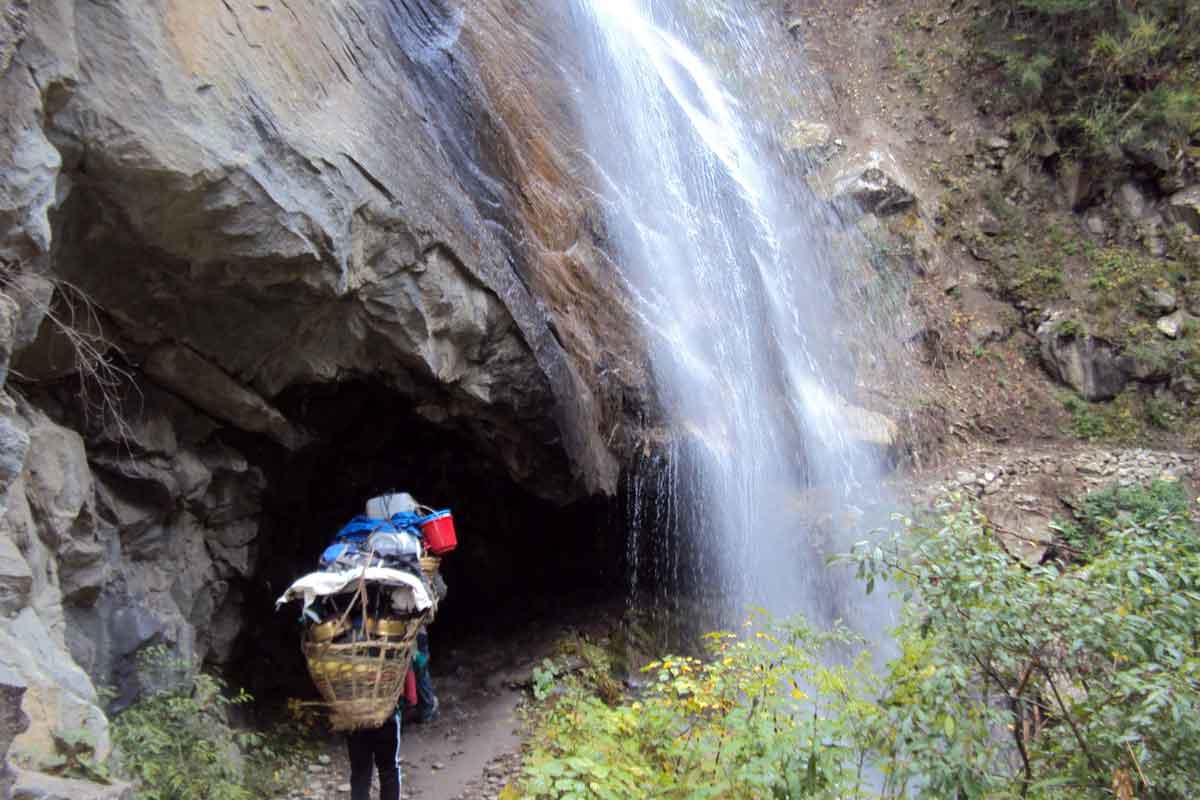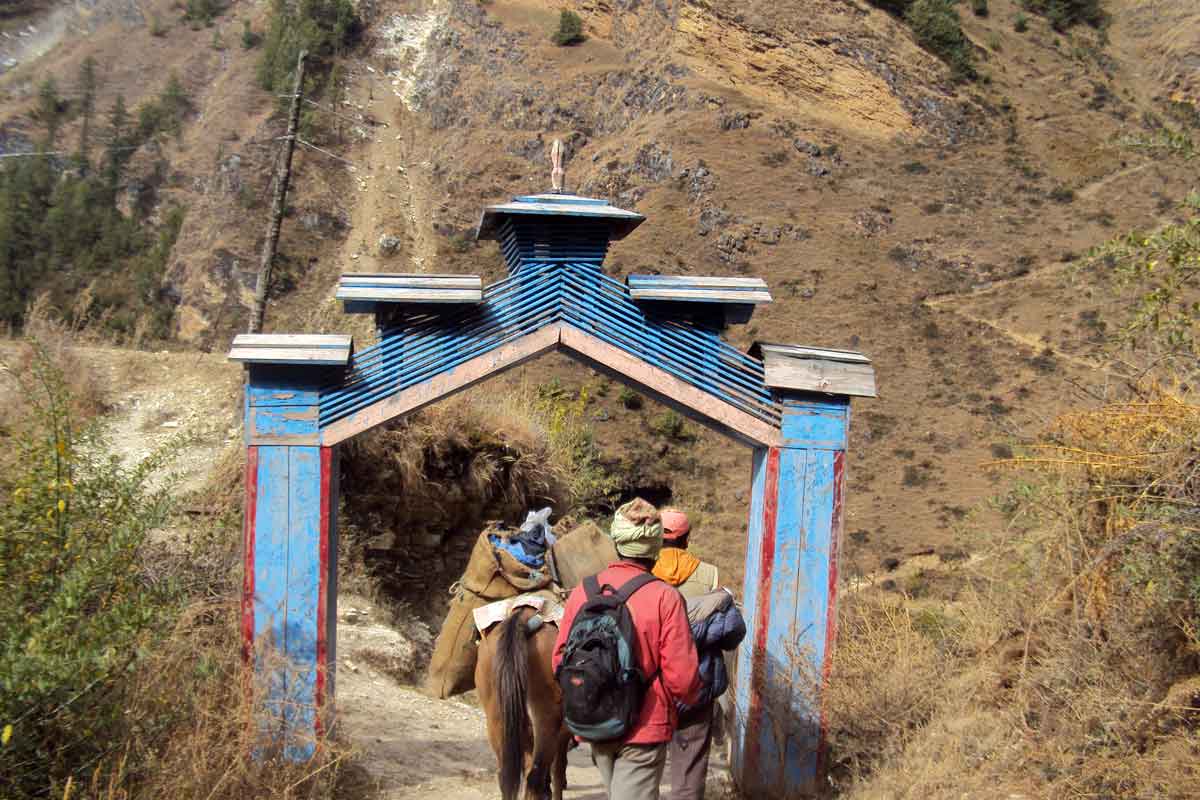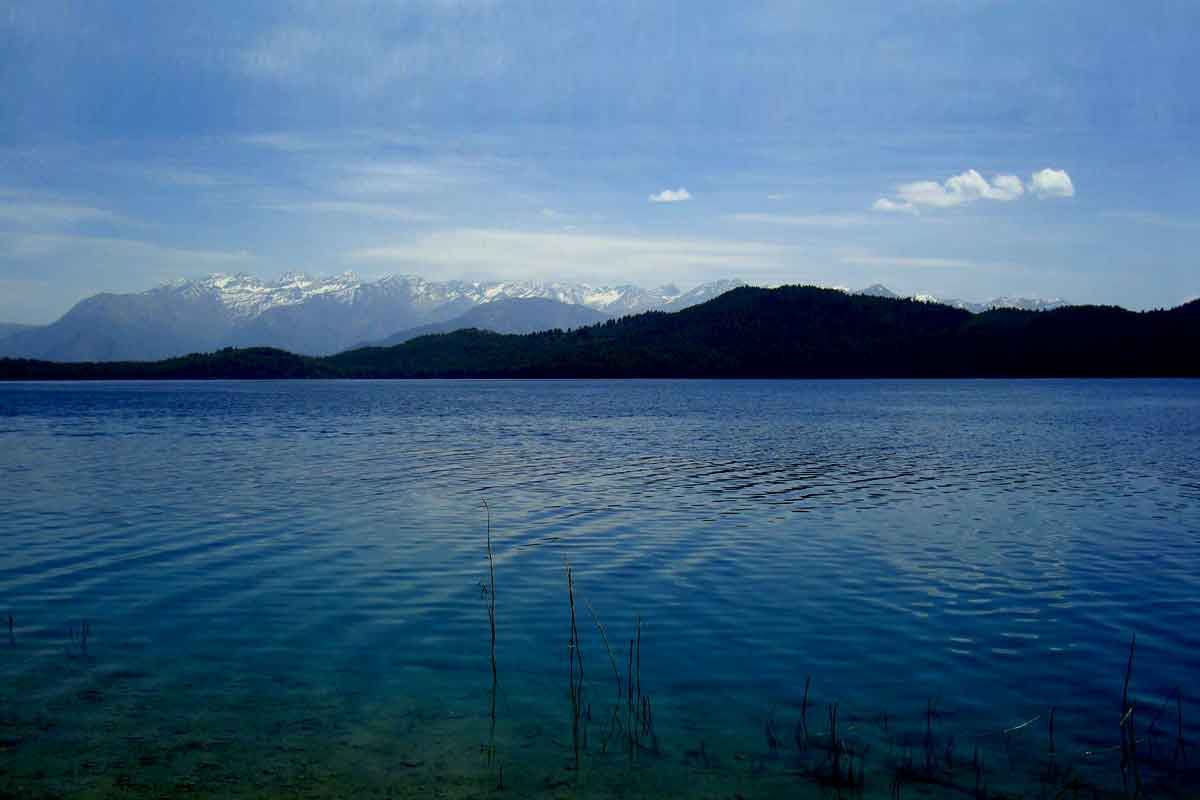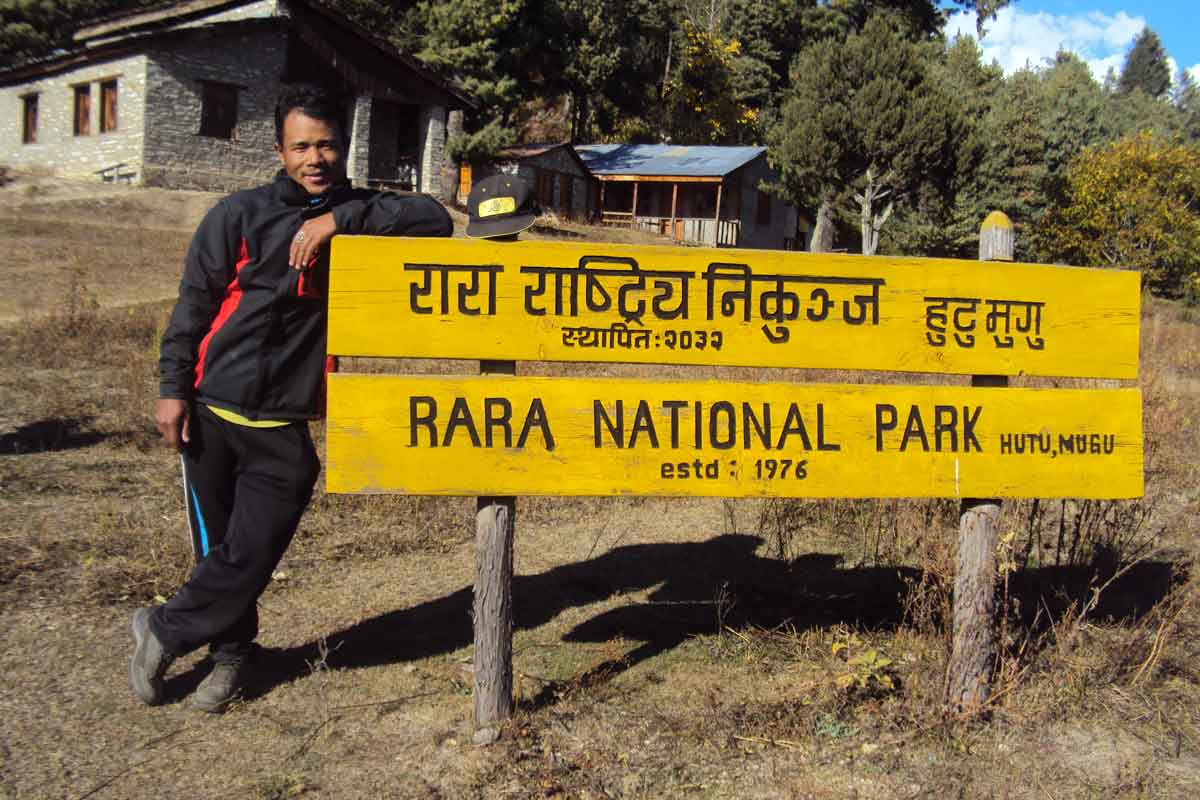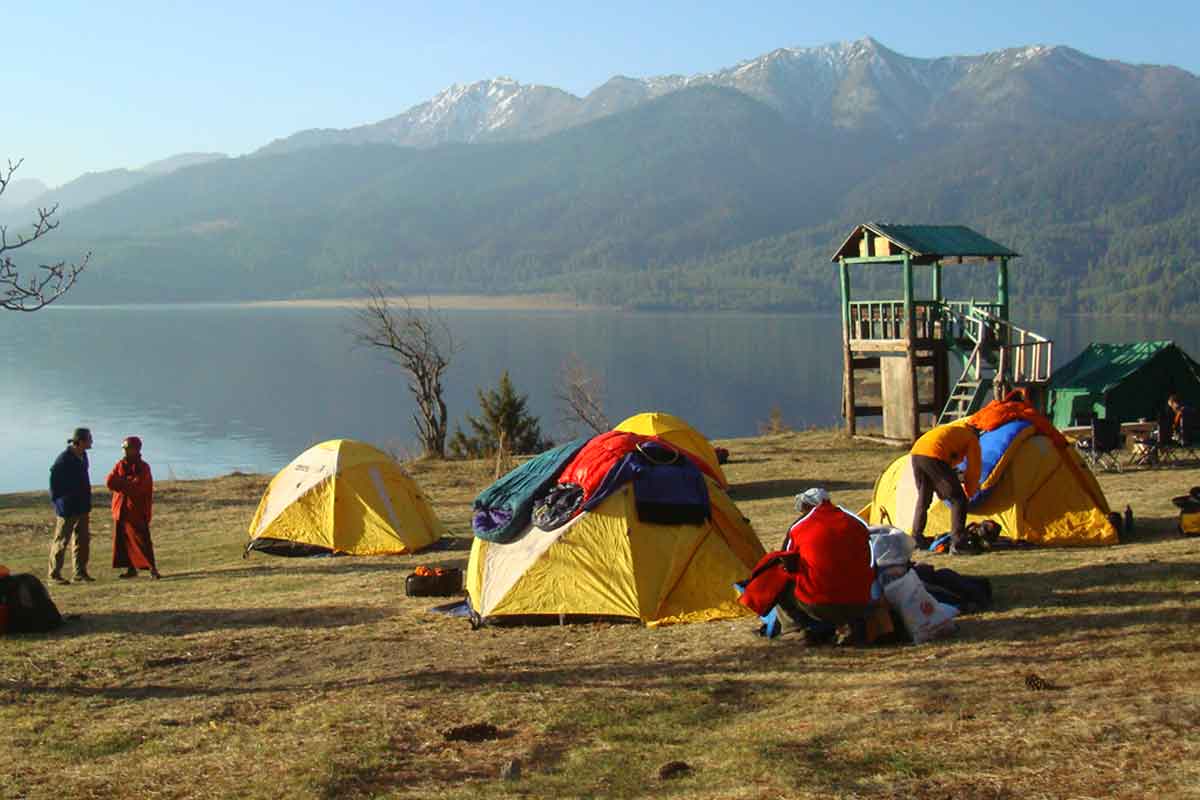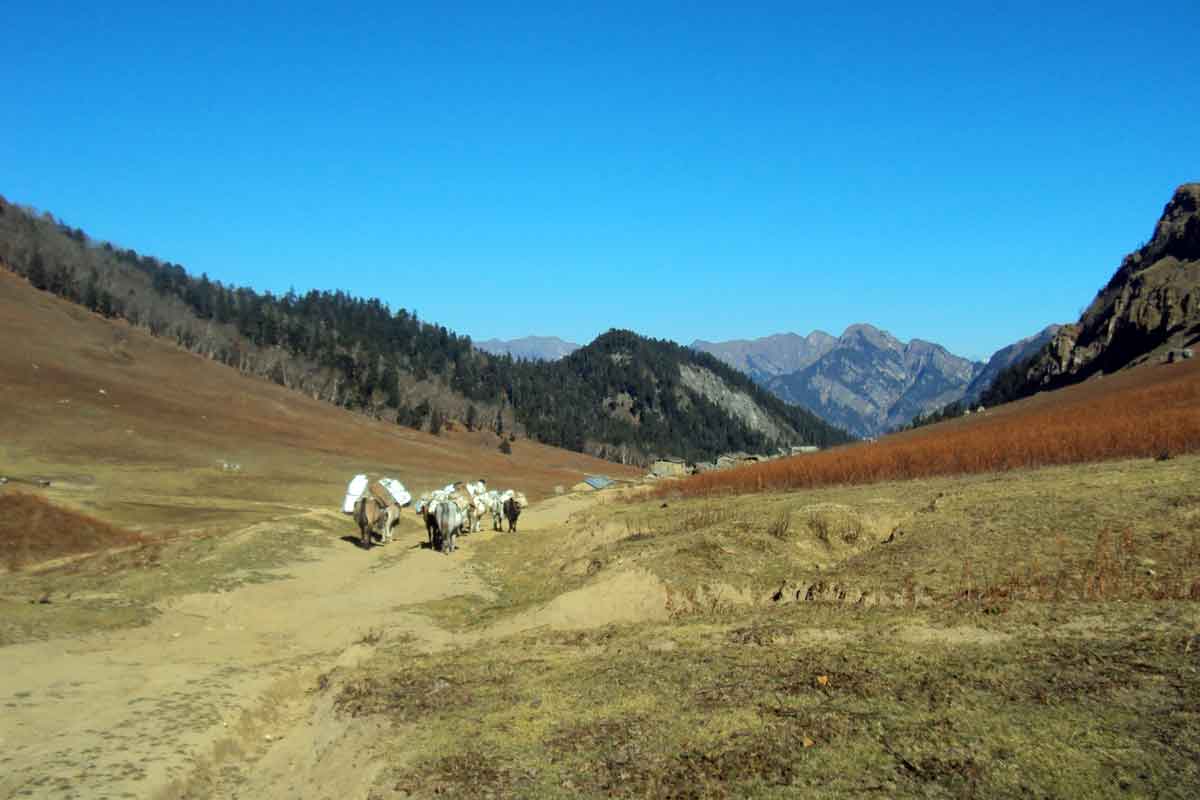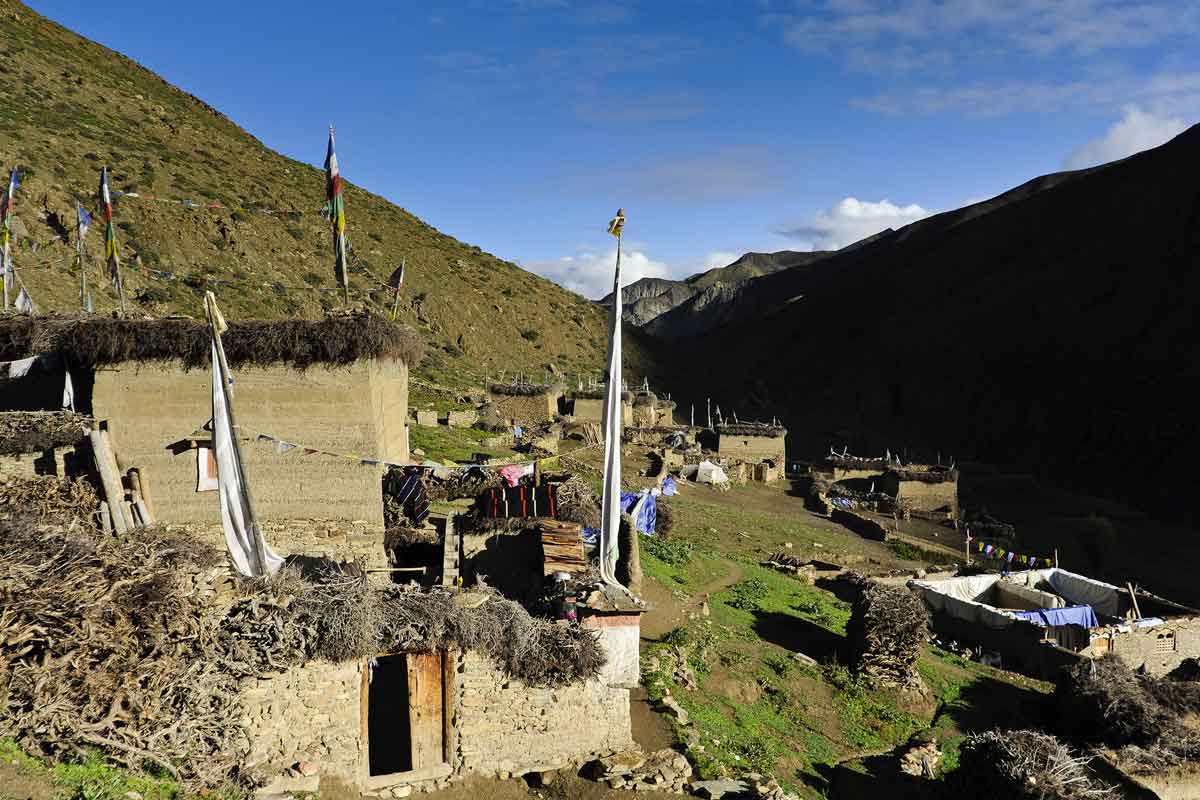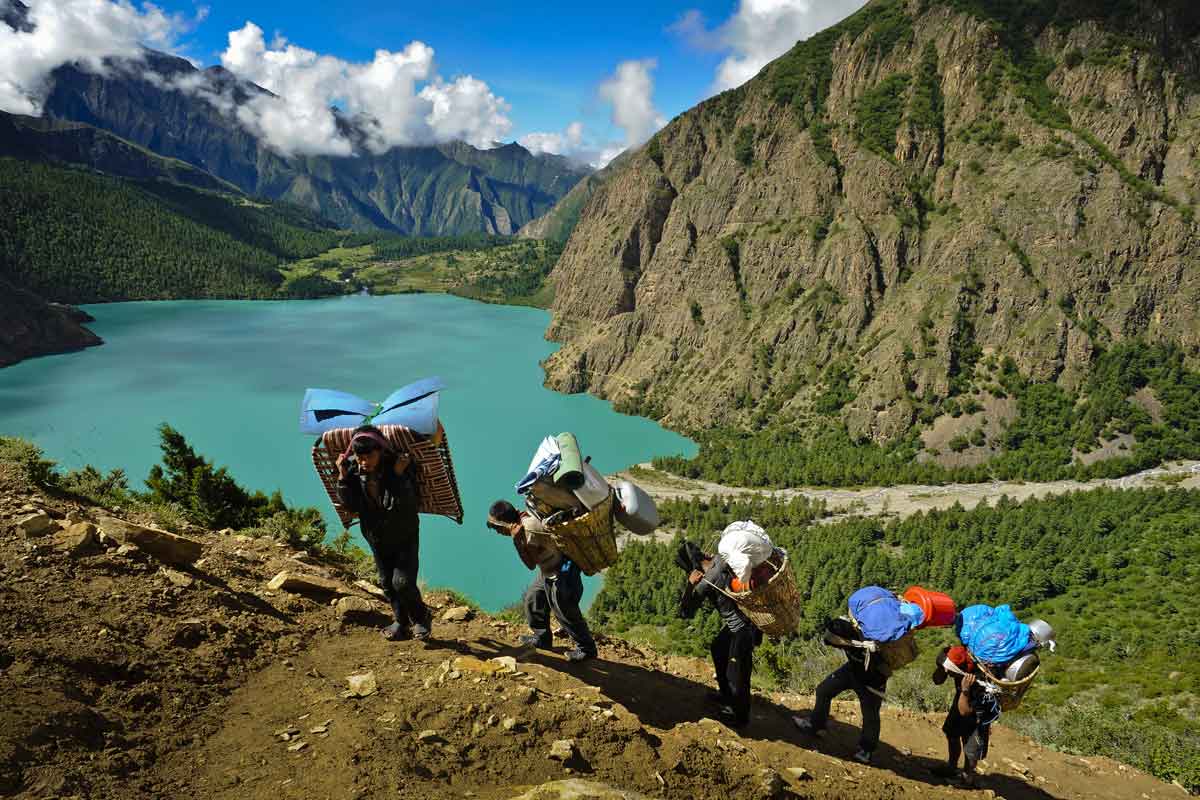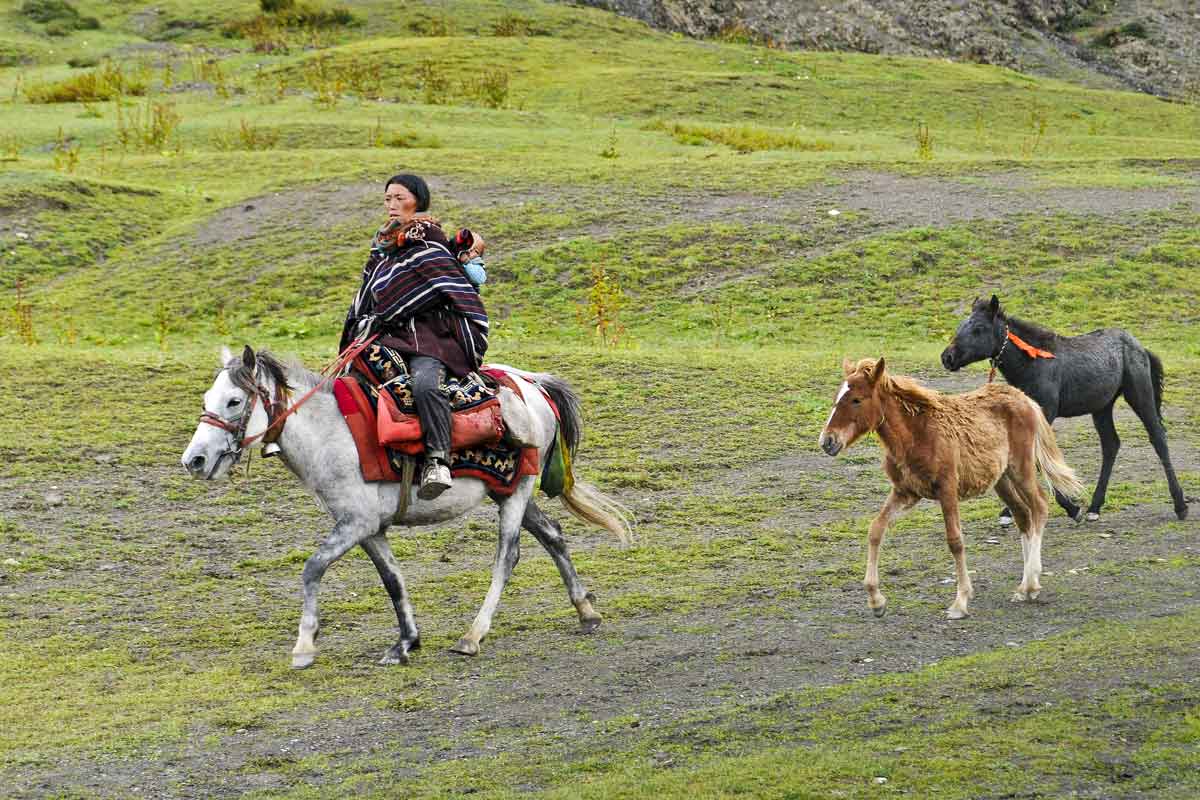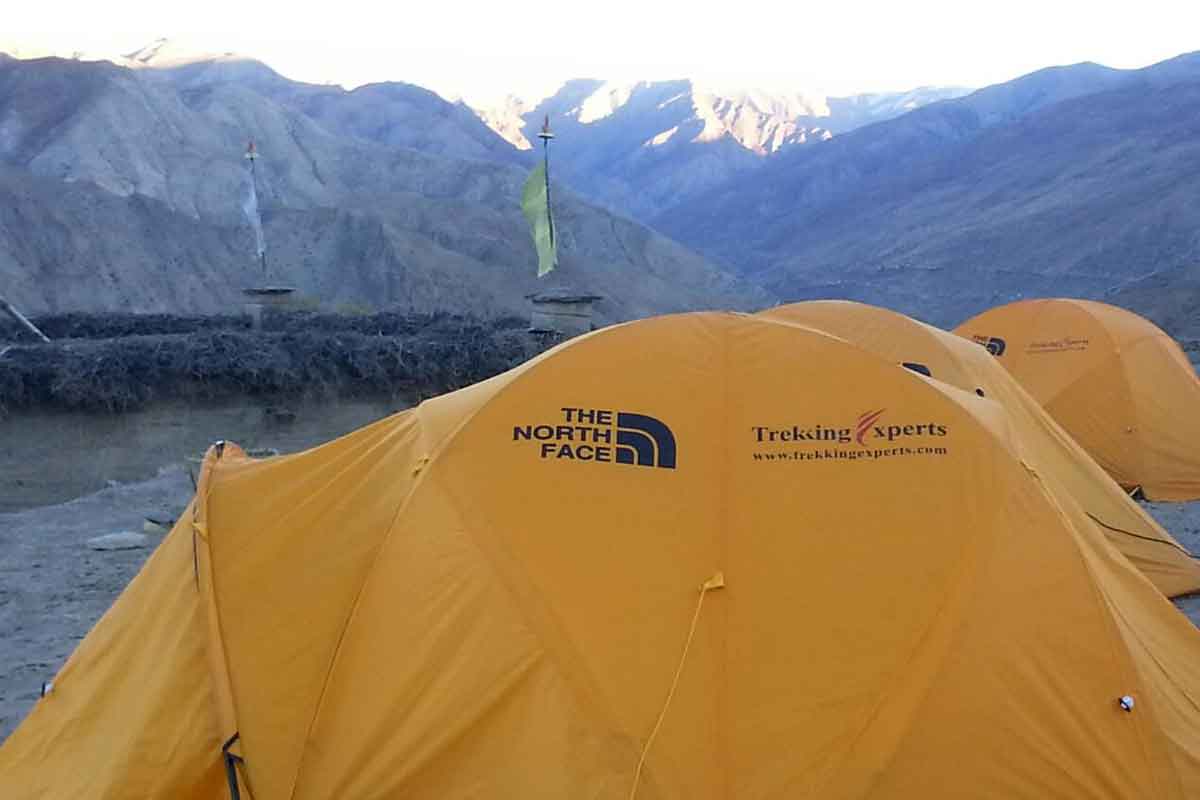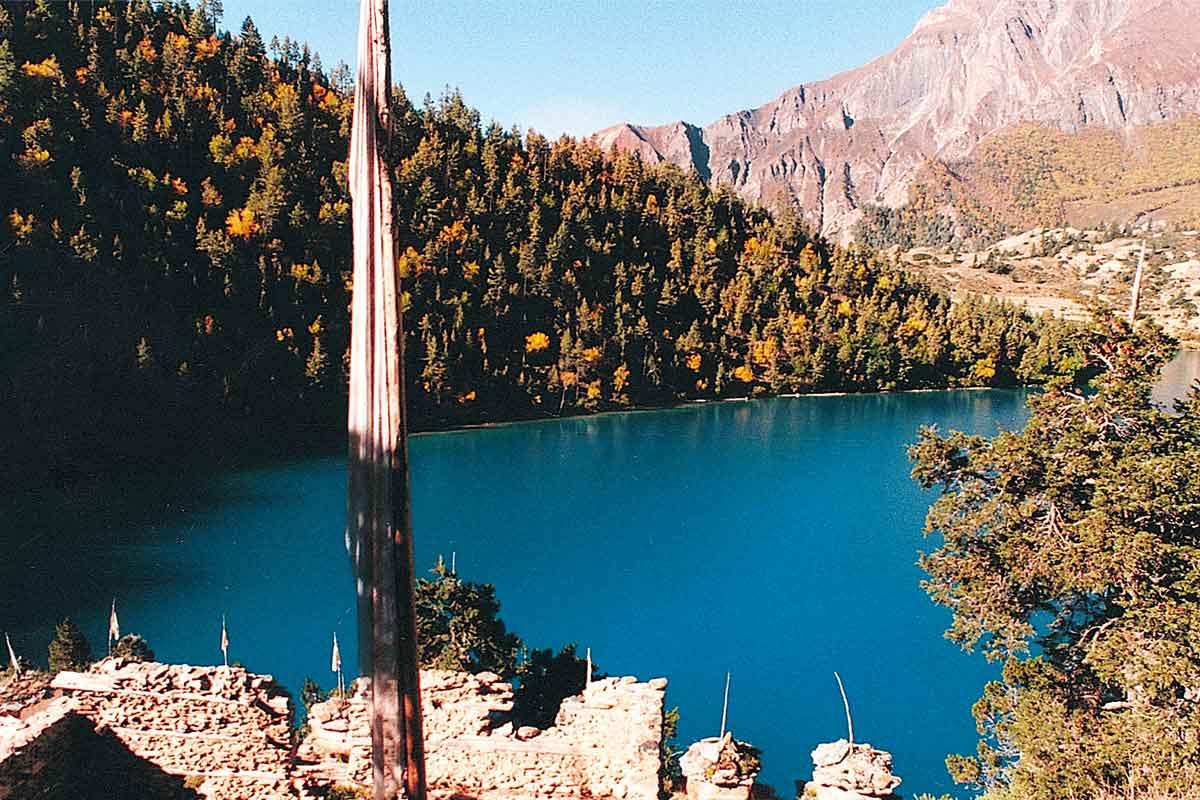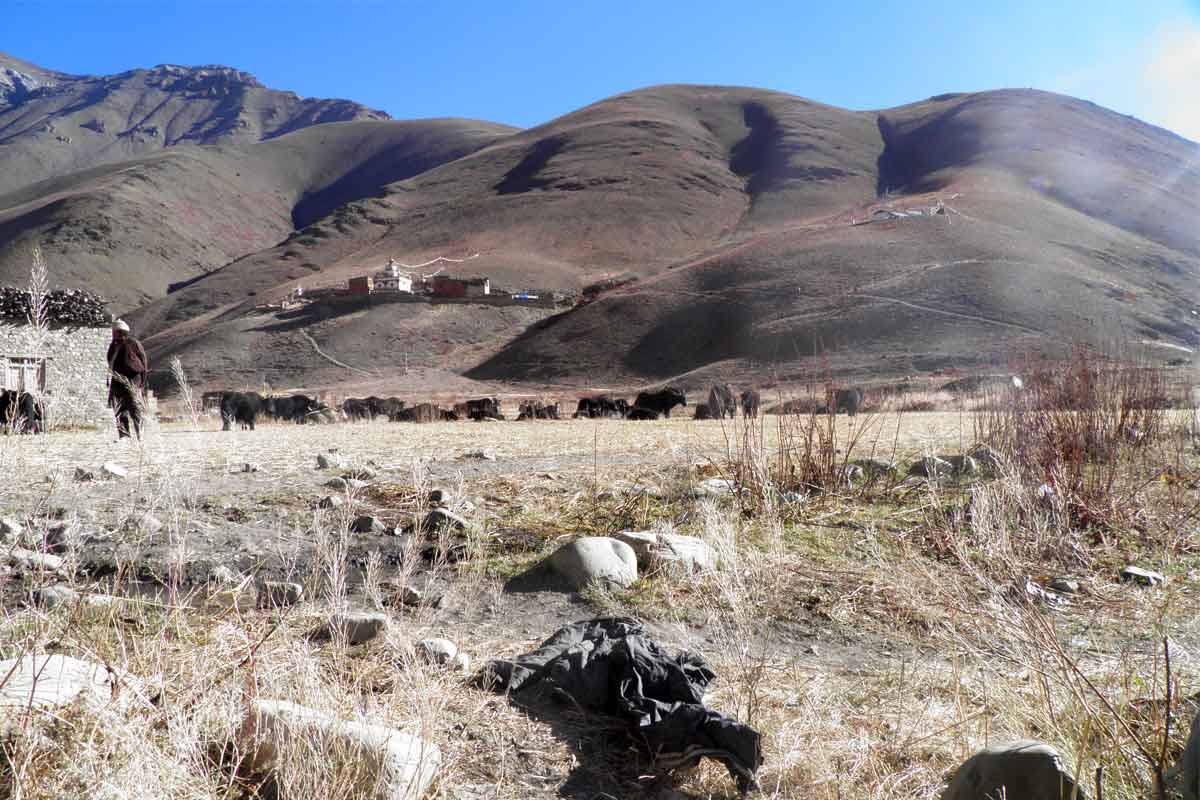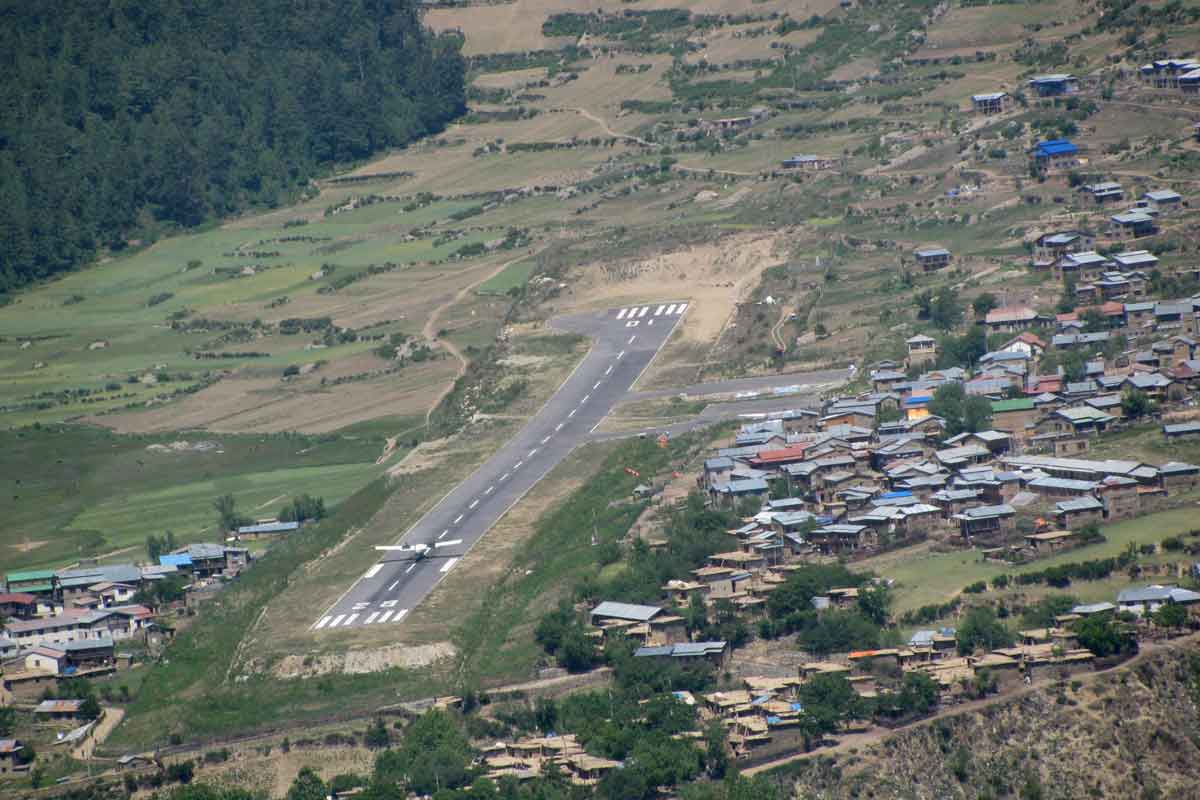Dolpo/Dolpa region is one of wonderful trekking destination for tented camp holidays. Dolpa region is a perfect destination for nature lovers, adventure seekers and cultural explorers. The famous SheyPhoksundo National Park is located in Dolpa region. Similarly, Jumla region is one of very remote and interesting place for trekking where Nepal’s biggest glacial lake Rara Lake is located there. Trekking Experts offers you this special edition of Jumla and Dolpo Trek which combines both region at one trip. This exclusive Jumla and Dolpo Trek is designed to Trekking Experts to provide you a unique adventurous trek perhaps it is the best way to get a taste of remote Nepalese life and culture. This combined trek of Jumla region and Dolpo region offer you magnificent mountain views, the dry and heart touching landscapes, rural villages and possibly the highest natural settlements of man. This trip offers you to witness the people, culture and cultural sites of the followers of the pre-Buddhist Bonpo religion.
The trek begins from Jumla, taking the trail route via Garankot, Bolanga Pass and assent to Bottom Baga La (5180m), which is highest point of the trek. You’ll descend through Ringmo, Chepka down to Juphal, where you catch the flight to Kathmandu via Nepalgunj. This trip includes typical Tibetan ethnic villages and also it is interesting to experience the wilderness along western part of Nepal.Jumla is the gateway to Rara Lake (2980m), a favored trekking destination in Nepal. Trekking inJumla offers you the combo of absolute wilderness and solitude. And trekking in Dolpo region offers you the absolute mystique gem of Nepal. You’ll get golden opportunity to see two most popular glacial lakes of Nepal Rara Lake and Phoksundo Lake in on trip. At the same time, you’ll walk through beautiful landscapes, passing through pine forests alongside wild rivers with views to beautiful snowcapped mountains. Hence, the Jumla and Dolpo Trek is sure to become a once in a lifetime experience for you, acquainting you to the flip side of Nepal, or rather a remote and pristine Nepal!
Witness the most popular glacial lakes of Nepal (Rara Lake &Phoksundo Lake)
Explore the natural beauty and untouched culture of Jumla region
Amchi Hospital (an Amchi is a traditional Tibetan doctor/healer)
Many ancient & white-washed monasteries like ThasoonChholing Bon-po Gompa
Special Bon cultural villages and inhabitants like DhoTarap
The culture & people of both Bon po and Nyingmapa of Buddhist sections
Upon your arrival at the Tribhuvan airport Trekking Experts representative welcomes you and assists to transfer in your hotel in Kathmandu. Upon arrival at hotel, our tour manager will brief you about trekking information and other necessary information. And then you’ll free time to explore Kathmandu. Dinner will be booked at the hotel.
 Star Hotel
Star Hotel Dinner
Dinner N/A Hours Walk
N/A Hours Walk 1310 meter
1310 meterToday, you have free morning at the hotel. This would be your final preparation for trek such as if you missed to buy anything for trekking, you can buy. In the afternoon, you’ll transfer to Kathmandu Domestic Airport and will fly to Nepalgunj. An hour flight to Nepalgunj takes you the south-west part of Nepal. Upon arrival at Nepalgunj airport, you’ll be picked by hotel. Check-in at hotel and rest at the hotel.
 Tourist-class Hotel
Tourist-class Hotel Breakfast/Dinner
Breakfast/Dinner  N/A Hours Walk
N/A Hours Walk 492 meter
492 meterAfter early breakfast at hotel, you’ll be transferred to airport as per your flight time. And then you’ll take short flight to Jumla which will be about 45 minutes’ flight. On arriving at Jumla our trekking crew will receive you, who have walked all the way from Nepalgunj with the camping gear and food supply. Jumla town is in a delightful valley and here are the highest limits of paddy cultivation, growing red rice. The town is the administrative headquarters of the entire Karnali zone and Jumla district. And you’ll start short walk to GothiChaur today. From Jumlathe trail will lead you past several water-driven mills before dropping to the confluence of the TilaKhola and the ChaudhabiseKhola. You’ll cross both rivers on a cantilever bridge which looks like it is held together by giant clothes pegs. From here our trail climbs gently alongside rice terraces to the village of DochalGhara at 2530 meter. From here we follow the trail througha forest of maples and walnuts to a meadow. In season the wildflowers seen here include cinquefoils, terrestrial orchids, forget-me-nots, mints, buttercups, primulas, edelweiss and gentians. Beyond the meadow the trail climbs toa rocky cairn at PattyataLagna (2830m), and then descends into a magnificent alpineAmphitheatre towards GothiChaur close to the stream at the bottom of the valley. At the spring here there are some 13th century Malla dynasty stone carvings. We will set up at river side in Gothi Chaur.
 Tented Camp
Tented Camp Breakfast/Lunch/Dinner
Breakfast/Lunch/Dinner  Hours Walk
Hours Walk 2500 meter
2500 meterAfter breakfast at GothiChaur, you will re-enter the Tila river valley and follow this river slowly to its source. After ascending through fields of barley and buckwheat you arrive at the trail junction at Muni Sangu, a small settlement where we can see peculiar carved wooden faces, called dok-pa and are supposed to offer protection from evilspirits. These faces can be seen throughout the whole Dolpo region. You’ll stay on the southern side of the river from here as the valley slowly becomes narrower and follow our way to Changrikot (a series of houses builtinto the hillside on the opposite side of the river at 2900m). The trail then finally crosses the river and climbs towards the grey stone houses of Chotra(3380m). The village has typical Mani walls (walls containing stones carvedwith Tibetan Buddhist prayers) and a Kani (arch, decorated with paintings on the inside) over the trail. And we shall set up camp at Chotra.
 Tented Camp
Tented Camp Breakfast/Lunch/Dinner
Breakfast/Lunch/Dinner  Hours Walk
Hours Walk 3380 meter
3380 meterAfter breakfast, you’ll trek to Balasa. The trail becomes steeper today as it climbs past rocky fields to forests ofoaks and birch trees strangled with Spanish moss. The climb will end at the MauriLagna (‘honey pass’) at 3820 meter. From this pass you’ll have good views of the snowy peaks of Gutumba (5608m) and Mataumba (5767m) to thenorth-east and Bhalu Himal (5460m) to the south. You will descent from here to the Bheri valley to the large Khampa settlement of Chaurikot at 3060 meter. A short time past this village there are some excellent campsites alongside the trail (5 hrs).
 Tented Camp
Tented Camp Breakfast/Lunch/Dinner
Breakfast/Lunch/Dinner  Hours Walk
Hours Walk 3085 meter
3085 meterAfter breakfast, you will continue our trek through walnut forests; the local people seldom eat the nuts but use them as a source for cooking oil. You’ll slowly descend to the village of Rimi at 2890 meter, where the amusing faces of the dok-pa peek at you from the tops of houses. After crossing the stream,you will arrive in Kaigaon (2610m), where you will find the first shop since leaving Jumla. The route climbs steeply up from here through pastures into a forest of birches and wild roses to an elevation of 3230 meter and then levels out in a forest of rhododendrons. After reaching at Hurikot, will set up camp.
 Tented Camp
Tented Camp Breakfast/Lunch/Dinner
Breakfast/Lunch/Dinner  Hours Walk
Hours Walk 2600 meter
2600 meterAfter breakfast at camp, you’ll cross to the eastern side of the river and where the valley narrows, the river becomes a series of waterfalls. The trail climbs to a moraine below the Kagmara La and we make our camp among the boulders. The views from here of the surrounding peaks are magnificent.
 Tented Camp
Tented Camp Breakfast/Lunch/Dinner
Breakfast/Lunch/Dinner  Hours Walk
Hours Walk 4190 meter
4190 meterAfter breakfast, you’ll alongside the Kagmara Glacier to the Kagmara La. This is a good place to spot the rare blue sheep. After a 900m descent, we reach the pastures of the PungmoKhola Valley. And trek to Lasa where we shall set up today’s camp.
 Tented Camp
Tented Camp Breakfast/Lunch/Dinner
Breakfast/Lunch/Dinner  Hours Walk
Hours Walk 4060 meter
4060 meterAfter breakfast, you trek though birch and juniper forests which soon give way to blue pine. Up the side valleys, there are views of Kanjirolba peak before you’ll reach the fortress-like village of Pungmo, set amidst barley fields.
 Tented Camp
Tented Camp Breakfast/Lunch/Dinner
Breakfast/Lunch/Dinner  Hours Walk
Hours Walk 3500 meter
3500 meterAfter breakfast as always, you’ll go downstream to the national park headquarters at Sumduwa before joining the trail up the PhoksumdoKhola to Phoksumdo Lake. You’ll climb through a forest of large cedars to the winter settlement of Palam and continue ascending through the open country to a ridge from which there are good views of the lake in the distance. Close by is a spectacular waterfall, the highest in Nepal. The trail then makes an initial descent before climbing gently to Ringmo village. After crossing a bridge below Ringmo, the trail continues northwards to the shores of Phoksumdo Lake.
 Tented Camp
Tented Camp Breakfast/Lunch/Dinner
Breakfast/Lunch/Dinner  Hours Walk
Hours Walk 3641 meter
3641 meterAfter two days tough trek at Numa La and Baga La Passes, today you can rest and explore around Phoksundo Lake. Phoksundo Lake is one the famous glacial lakes of Nepal. Also there is Tibetan Buddhist monastery nearby which is well worth a visit, as is the village of Ringmo. A walk part way round the lake is also very enjoyable and relaxing. This is a great day exploring the lake areas and with a great view.
 Tented Camp
Tented Camp Breakfast/Lunch/Dinner
Breakfast/Lunch/Dinner  Hours Walk
Hours Walk 3641 meter
3641 meterAfter breakfast at camp, today you’ll descend to Sanduwa first. Sanduwa literally means three trials. It lies between the KagmaraKhola and the PhoksundoKhola. A national park and an army check post sit here. And you’ll trek to Trek to Chhepka (2,680m). You will now descend to Chhepka leaving the beautiful mountains in the backdrop. We will follow the stream going south and cross a beautiful forest to reach Chhepka where we will spend the night.
 Tented Camp
Tented Camp Breakfast/Lunch/Dinner
Breakfast/Lunch/Dinner  Hours Walk
Hours Walk 2680 meter
2680 meterAfter breakfast at camp, today you’ll finish off your trekking. The trail starts with about 3 hours descent till Sulighat and then you’ll trek about 3 hours ascent to reach Juphal.
 Tented Camp
Tented Camp Breakfast/Lunch/Dinner
Breakfast/Lunch/Dinner  Hours Walk
Hours Walk 2475 meter
2475 meterAfter early breakfast at Juphal, you’ll take a short 30 minutes’ flight to Nepalgunj from Juphal. And then you’ll catch another flight to Kathmandu from Nepalgunj. Depending the flight time to Kathmandu, you can spend some time in Nepalgunj to wait connecting flight to Kathmandu. Upon arrival in Kathmandu airport, you’ll be transfer to hotel.
 Star Hotel
Star Hotel Breakfast/Dinner
Breakfast/Dinner  Hours Walk
Hours Walk 1310 meter
1310 meterAfter enjoying a leisurely breakfast at the hotel, you’ll be met by your city tour guide for our day trip to a few of the Kathmandu valley’s most spectacular and important sights and some vibrant, colorful markets. With a meld of three ancient capitals and their associated palaces, temples and markets of Kathmandu has a lot to offer culturally and historically. However, we’re mindful not to overload you on your first day so will ensure the day has a good balance between sightseeing, exploring and relaxation time. The exact itinerary may change depending on the local conditions but we shall most likely visit: - Pashupatinath, one of the most important temples in South Asia to the Hindu God, Lord Shiva; - One of the three Durbar (Palace) Squares, a complex of palaces and temples which was formally the social, religious and administrative focal point of the ancient city. - Boudhnnanath Stupa, a wonderful Buddhist site centered on a huge Stupa topped with the all-seeing eyes. If possible, you’ll come here in the early evening to soak up the atmosphere of hundreds of Tibetan and Sherpa peoples walking their devotional khora. And after your back to hotel. Evening farewell dinner at local authentic Nepalese restaurant. Overnight at Hotel
 Star Hotel
Star Hotel Breakfast/Dinner
Breakfast/Dinner  Hours Walk
Hours Walk 1310 meter
1310 meterDepending on your flight time, you’ll be transfer to airport before 3 hrs of flight time.
 N/A
N/A Breakfast
Breakfast N/A Hours Walk
N/A Hours Walk N/A meter
N/A meter| Dates Arrival-Departure |
Duration No. of days |
Availability Space |
Trip Cost USD in per person (twin Sharing) |
|
|---|---|---|---|---|
| Condition Apply* | ||||
| Dates Start | Dates End | Trip Cost (twin Sharing) | ||
|---|---|---|---|---|
| Condition Apply* | ||||
3 nights in Kathmandu at three star-hotels on twin sharing basis 1 night in Nepalgunj at tourist-class hotel on twin sharing basis 11 nights in tented camps during the trekking on twin sharing basis
3 meals a day during the trekking at tented camps served by our cook (Breakfast, lunch and dinner) except in Kathmandu Breakfast and dinner during Kathmandu hotel stay Farewell Dinner in Kathmandu at the end of the trip with typical Nepalese food
All airport/hotel/airport transfers by private air-conditioned vehicle Ground transfer for Kathmandu sightseeing by private air-conditioned vehicle Kathmandu-Pokhara by private air-conditioned vehicles Kathmandu-Nepalgunj and Nepalgunj- Kathmandu flight with airport taxes Nepalgunj-Jumla and Dolpo-Nepalgunj flight with airport taxes 18 kg baggage per person for trek and flights
Shey Phoksundo National Park Fee Rara National Park Fee Lower Dolpo Special Permit Fee Jumla Special Permit Fee All monument entrance fees during Kathmandu sightseeing
1 English speaking experienced trekking guide 1 experienced trekking cook Required kitchen team (kitchen helpers) 1 assistant guide for every 5 members Required porters to carry personal baggage, camping equipment, kitchen utensils and trekking food English Speaking city guide for Kathmandu sightseeing
Support for airport pick up, drop and farewell dinner
One 2-men sleeping tent for every two members 1 Foam mattress for every member Dining Tents and kitchen tent Required toilet tents Required Shower tents Required tables and chairs Required kitchen utensils with fuel Solar light for lighting purpose only
Comprehensive First Aid Kit Comprehensive Trekking Map and Kathmandu Valley Map 1 Satellite Phone for emergency use only 1 Certec Bag for emergency use
All personal expenses like alcoholic beverages, bottled drinks, telephone calls, laundry services etc. Medical and travel insurances International airfare and taxes Nepal Visa fees Emergency helicopter rescue charges Main meals in Kathmandu (lunch and dinner) Tips for trekking crew
